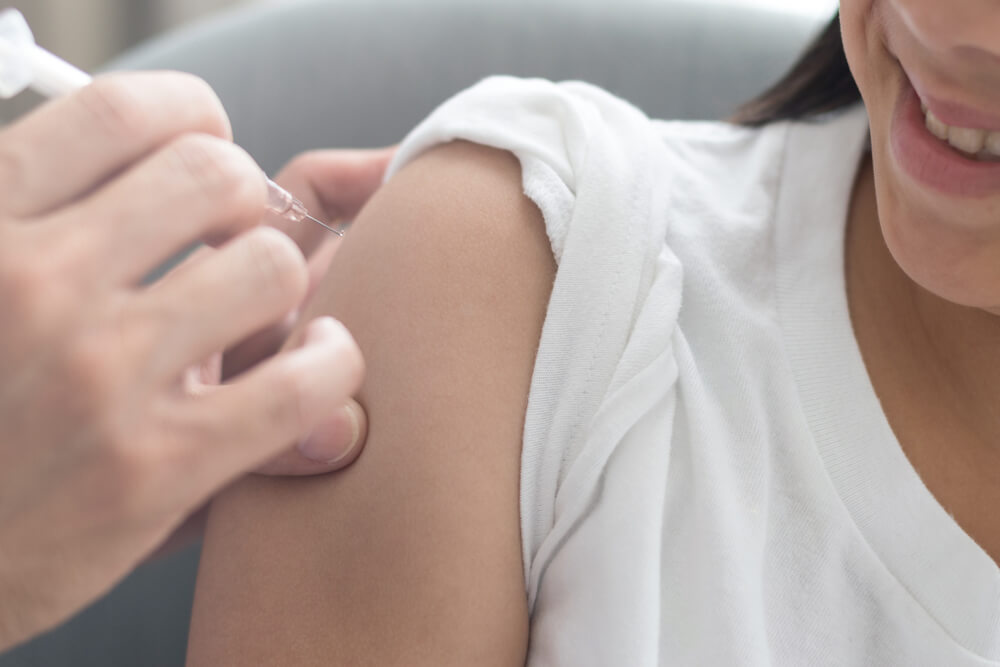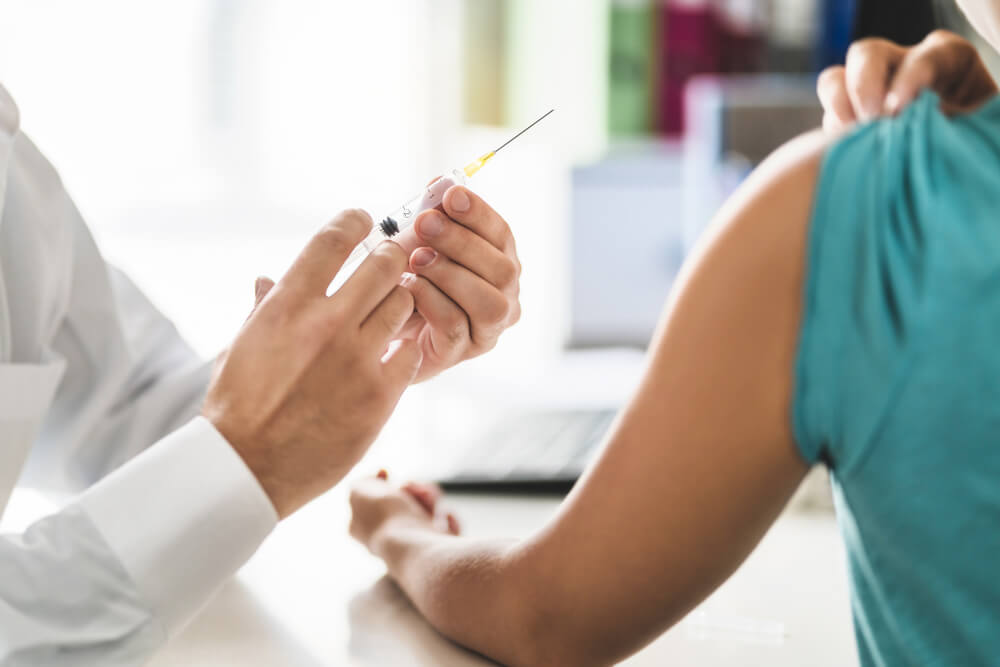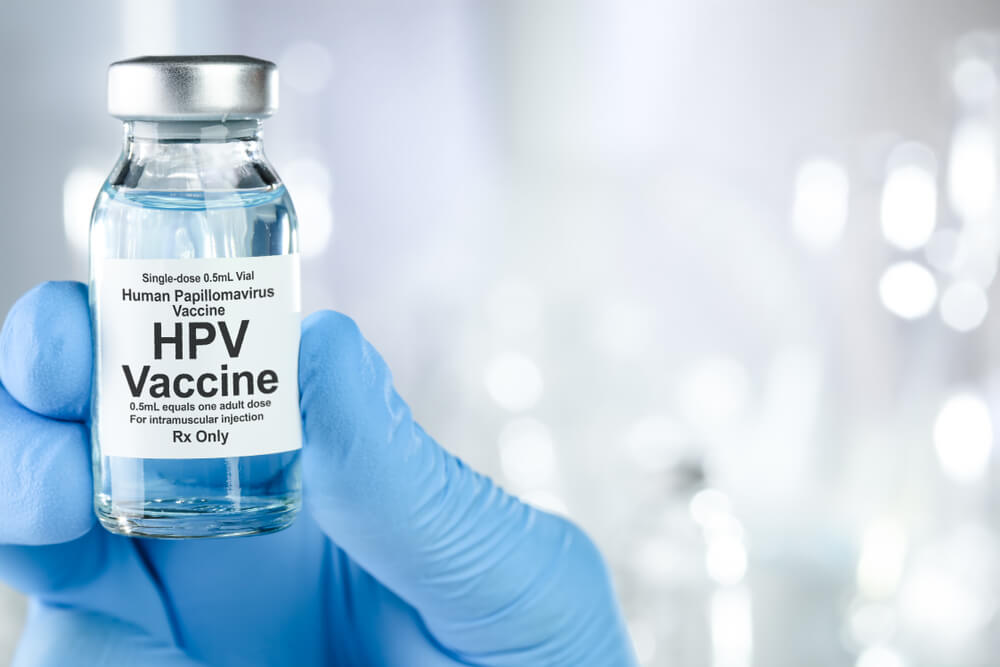Human papillomavirus (HPV) is one of the most common and widespread viral infections when we are talking about reproductive health, and most people contract it at least once in their lifetime. There are more than 200 types of HPV, and they are very easily transmitted from person to person.
Some of the ways people get infected are:
- Through sexual transmission: vaginal, anal, or oral sexual relations with someone who is already infected
- Through non-sexual transmission: skin-to-skin contact with a person who has the infection
Types of HPV infections are usually divided into low and high-risk, and there are no “one size fits all” treatments for HPV infections. This said, the HPV vaccine is one of the ways to protect yourself from some types of HPV, which cause cancer in men and women, as well as general warts. Although very effective, there are potential risks to the HPV vaccine.
In order to be successful in HPV management, it is essential to have all possible information on this condition and your options. This starts with picking a highly qualified HPV doctor, and the Women’s Health Partners Obstetricians & Gynecologists is the right place to ask for help and further guidance.
HPV Vaccine 101
To be able to decide whether you want to get vaccinated against HPV, we are bringing you a list of some basic facts about the vaccine itself:
- The vaccine is given in two doses (injected in the upper arm), and it is essential to get both doses to be fully protected from some types of HPV.
- The vaccine protects the organism from different types of cancer, such as cancer of the cervix, vagina, vulva, anus, penis, throat, and from genital warts.
- The HPV vaccine can be given to children aged nine and above to protect the organism before the person becomes sexually active.
- It has been proven that the vaccine is safe and that it does not contain any harmful ingredients.
- Since 2006, 270 million doses of the vaccine have been given all over the world.
- The vaccine protection lasts for a long time (more than ten years), and research has shown that there are no signs that the protection decreases over time.
- It is suited for both males and females.
HPV Vaccine Side Effects

As already pointed out, the HPV vaccine has been researched in many different ways in the past, and experts agree that the vaccine is safe. Additional testing and clinical trials have proven that the vaccine does not contain any harmful substances to the human body and that it is safe to be given to children and adults.
Despite this, there are particular HPV shot side effects that are worth mentioning so you can be as prepared as possible to make an informed decision about the vaccination against HPV.
Most of the HPV vaccine side effects are considered to be mild and almost guaranteed to pass within days. Some of them are:
- Fever
- Nausea and vomiting
- Pain, redness, or bruising around the area where the shot was injected
- A feeling of fainting (mostly in adolescents)
- Headache
- Rash on the skin
- Fatigue
- Mild muscle pain
- Mild joint pain
- Breathing difficulties (very rare)
One of the rarest HPV shot side effects is an allergic reaction to the vaccine. For this reason, the patients are asked in detail about their allergies before the injection itself, and after it, they are advised to remain seated for 20 minutes or so.
An allergic reaction can be caused by several factors, such as being allergic to yeast, latex, polysorbate 80, L-histidine, sodium borate, or potentially not paying close attention to a previous allergic reaction to the first dose of the medicine.
In case you are allergic to something from the list above, your reaction could include:
- Loss of consciousness
- Confusion
- Fast heart rate
- Feeling like you will faint
- Breathing difficulties
The potential allergic reaction can be treated, and the staff giving the vaccines is trained and equipped to deal with these kinds of situations. Side effects of the vaccination process are taken with the utmost seriousness, so the patients are welcomed and advised to share any symptoms with the practitioners immediately.
In any case, if you continue feeling ill after more than a few days following the vaccination, contact your chosen general practitioner to be additionally checked for potential complications.
HPV Vaccine Side Effects: Long-Term
After a significant amount of research that has been done in the last 15 or more years in the field of HPV infections and risks of the HPV vaccine, scientists mostly agree that there is no evidence of any long-term consequences or side effects of the HPV vaccine.
Many different conditions such as chronic fatigue syndrome, regional pain syndrome, premature ovarian failure, and alike have been studied through the lens of long-term side effects of the HPV vaccine. No evidence has been detected regarding the increase of cases of these diseases in people who have gotten vaccinated against HPV compared to people who were not vaccinated.
HPV Vaccine and Infertility
The topic of the HPV vaccine and infertility has been very popular amongst people deciding whether to get vaccinated.
It is essential for people who are planning to start a family to get acquainted with potential side effects which can jeopardize their chances of having a baby.
As in the case of most conditions previously mentioned, there is no evidence that the HPV vaccine causes infertility. HPV infections can cause cancer of some reproductive organs, where the treatment of those conditions leads to the loss of certain abilities, such as getting pregnant.
As mentioned, not being vaccinated against HPV infections raises your chances of getting cancers or precancers, i.e., malformed cells, which lead to cancer. If such a condition occurs, the treatments heavily impact the body, and persons have to go through different series of chemotherapy, radiation, hysterectomy, etc., in order to recuperate from the disease.
When the reproductive organs are exposed to such an intense course of medical care, fertility and other abilities might be reduced or completely lost. Due to such cases, the HPV vaccine is directly connected with the topic of infertility.
Cancer and the HPV Vaccine

It is of the utmost importance to emphasize how big of an impact the HPV vaccine has had worldwide on the decrease in cases when it comes to cancer of the reproductive organs. Below we listed a few statistical facts which show how important this vaccine has been in the fight against cancer in the last couple of decades.
- The rates of cervical cancer have been reduced by 87% in women who have been vaccinated from the age of 12 to 13
- Infections by HPV types causing most HPV cancers and warts dropped 81% in young adult women and 88% in teen girls
- The percentage of cervical precancer cells, which were caused by HPV, has dropped by 40% among vaccinated women
Get Informed!
Being surrounded by many different sources of information most certainly has its advantages, but it also opens a space for potential misinformation and confusion. To avoid being ill-informed, feel free to contact our professional and experienced staff, who will give you trustworthy information and help you make a choice that is best suited for your needs. Call us!


